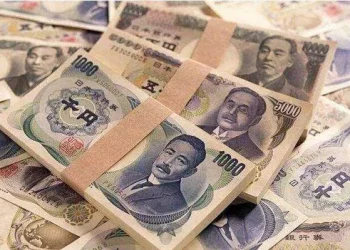Chinese companies are rapidly reallocating their funds back into the domestic market, spurred by recent U.S. interest rate cuts that have diminished returns on dollar-denominated assets. This shift resulted in the largest monthly capital inflow into China in nearly two years.
According to official data released on Tuesday, domestic firms sold a significant amount of foreign exchange to banks in September, marking the highest volume since December 2021. This trend marks a sharp turnaround from the previous year’s substantial purchases of U.S. dollars and other foreign currencies. Additionally, the data indicates an increase in foreign currency settlements for goods trade, suggesting a growing confidence in the stability of the yuan, along with record foreign exchange sales related to securities investments.
The movement follows a recent decline in the U.S. dollar, although the dollar’s value has rebounded as questions mount regarding the pace of future Federal Reserve rate cuts. The offshore yuan gained traction in late September, briefly surpassing the 7-per-dollar threshold after the People’s Bank of China announced measures aimed at supporting the economy and revitalizing the stock market.
Ken Cheung, chief Asian FX strategist at Mizuho Bank, commented, “The data confirms a reduced risk of RMB depreciation following the Fed’s pivot, with the yuan’s rally bolstered by actual foreign exchange settlement flows.” He noted that the sustainability of this trend will depend on the speed of Federal Reserve rate cuts, the upcoming U.S. elections, and the scale of China’s economic stimulus efforts.
Despite these developments, the yuan has depreciated by 1.8% against the dollar in offshore trading this month, as investors weigh the likelihood of slower Fed rate cuts and navigate uncertainties surrounding the U.S. elections. The recent surge in Chinese stock prices has also lost some momentum due to a lack of subsequent policy support.
During a briefing on Tuesday, a representative from China’s foreign exchange regulator pointed out signs of improving market sentiment, such as an increasing foreign currency settlement ratio and a rise in foreign investments in local bonds. Li Hongyan, deputy chief at the State Administration of Foreign Exchange, assured that trading activity in the forex market remains orderly and rational.
Eddie Cheung, a senior emerging markets strategist at Credit Agricole CIB in Hong Kong, remarked, “The key question is whether this trend will endure. While I anticipate strong numbers for October, it will only represent two months of data.”
Related Topics:

























